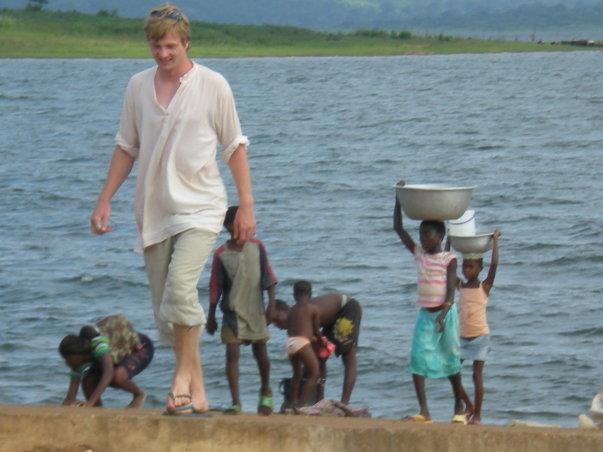When you volunteer abroad, you will probably have your first “I’m not in Kansas anymore” moment very early on in the trip.
It might go something like:
> A school teacher whacking a misbehaving child with a bamboo stick.
> Your taxi driver offering a marriage proposal.
> The Director not showing up on your first day volunteering at an orphanage.
One volunteer in Ghana wrote to us:
My values and belief systems were confronted daily in Ghana and I had to reconsider things that I had taken for granted. I don’t know if I’m more worldly as a result, but it definitely changed the way that I view societies.
Say What?
Perfectly nice locals in our host countries will often ask seemingly intrusive questions about your appearance, marital status, religion, education level, and income.
Your host family will not understand your desire to come-and-go as you please. They will have a strong paternalistic sense of responsibility for you and will get very worried if you are not home by sunset; they might call your mobile in a panic.
Thousands of pre-teen girls sell goods on the street everyday in our host countries (often in lieu of going to school). Yes this is child labor, but to her family the girl’s income is their only way buying food. Do you ignore the girls or buy from them?
Elders, especially in village areas, expect people to greet them by crouching down with their arms resting on their knees. In Nepal and India, you will even see family member literally kissing the feet of parents before going on a journey. Are you going to do the same?
What To Think?
First of all, understand that you are in a very different country now. You’re living and volunteering in communities abroad that have cultural practices, life experiences, histories, needs, infrastructure (lack of), and world views that are likely very different from yours.
You can either fight this type of reality or learn to adapt to it.
We strongly suggest the latter.
You have to accept the responsibility that comes with being a stranger in a strange land.
This is their house; not yours.
What To Do?
Here are some strategies for dealing with your new culture when volunteering overseas:
- Be humble and respectful
- Observe & Listen
- Be Inquisitive
- Ask Questions
- Do not judge
- Do not act offended by comments or questions
- Offer your help
- See yourself in others
- Smile
Oh, and how does Dorothy deal with her own culture shock in Oz?
I think she said something like, “There’s no place like Philly home…”
Let’s listen:

